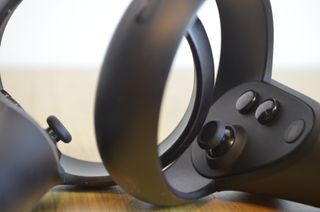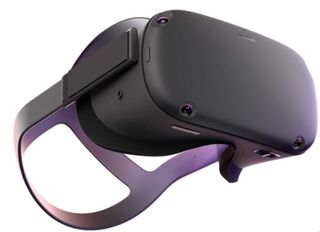It looks like the Oculus Quest 2 may be delayed

What you need to know
- The Oculus Quest 2 looks to be delayed from the end of 2020 to sometime in 2021.
- New 'Jedi' controllers will feature improved ergonomics, motion tracking, and possibly more features.
- A refined headset could include reduced weight, smaller size, better headstraps, and even an improved display with a higher refresh rate.
If you're one of the lucky owners of a hard-to-find Oculus Quest, rest assured that your investment now has even longer until it can be considered "out of date". That's because the next-generation Oculus Quest 2, code-named Del Mar, may just see a delay until sometime in 2021. That's according to industry insiders spoken to by Bloomberg, who are citing supply chain shortages and problems related to factory workers being out of work due to COVID-19.
Facebook reportedly was set to announce the next-generation Oculus Quest 2 at its annual Oculus Connect conference, which has now been shifted to an entirely digital format, and seems likely to no longer include a new hardware announcement. But a delay could spell positive news for Facebook, as the company has been unable to provide a consistent supply of headsets since the launch of the Oculus Quest this time last year. This could give it ample time to beef up its supply chain for a successor.
Leaks for the Oculus Quest 2, code-named Del Mar, began flowing earlier this year and continue to make the Quest's successor look like a fantastic follow-up to what many call the best VR headset on the market. Those leaks pointed to a new controller design, code-named 'Jedi', which will feature enhanced ergonomics and functionality, including redesigned battery covers that don't slip off as easily as the first-generation design. While the likely improvements to the headset itself include additional RAM, battery efficiency, and a newer processor, Facebook has been working on several prototypes that enhance other areas of the Oculus Quest 2, as well.
Some prototypes look to be 10-15% smaller, while others bring the weight down to only a single pound; a 20% reduction versus the current Oculus Quest. Some of this size and weight reduction is achieved through a material change, which includes more plastic and less fabric, while the headstrap design is reportedly undergoing serious changes and may be made out of elastic straps instead of the current rubber and velcro ones. Lastly, is a marked improvement in the display panels, which may see a jump in refresh rate up to either 90Hz or 120Hz. That's an improvement over the current refresh rates of 60Hz and 72Hz and would help make the action smoother and further help reduce motion sickness.

Freedom to move
The Oculus Quest is a standalone VR headset. That means there's no need for a PC to power it or wires to get in the way. It's freedom the way VR was meant to be..
Be an expert in 5 minutes
Get the latest news from Android Central, your trusted companion in the world of Android

